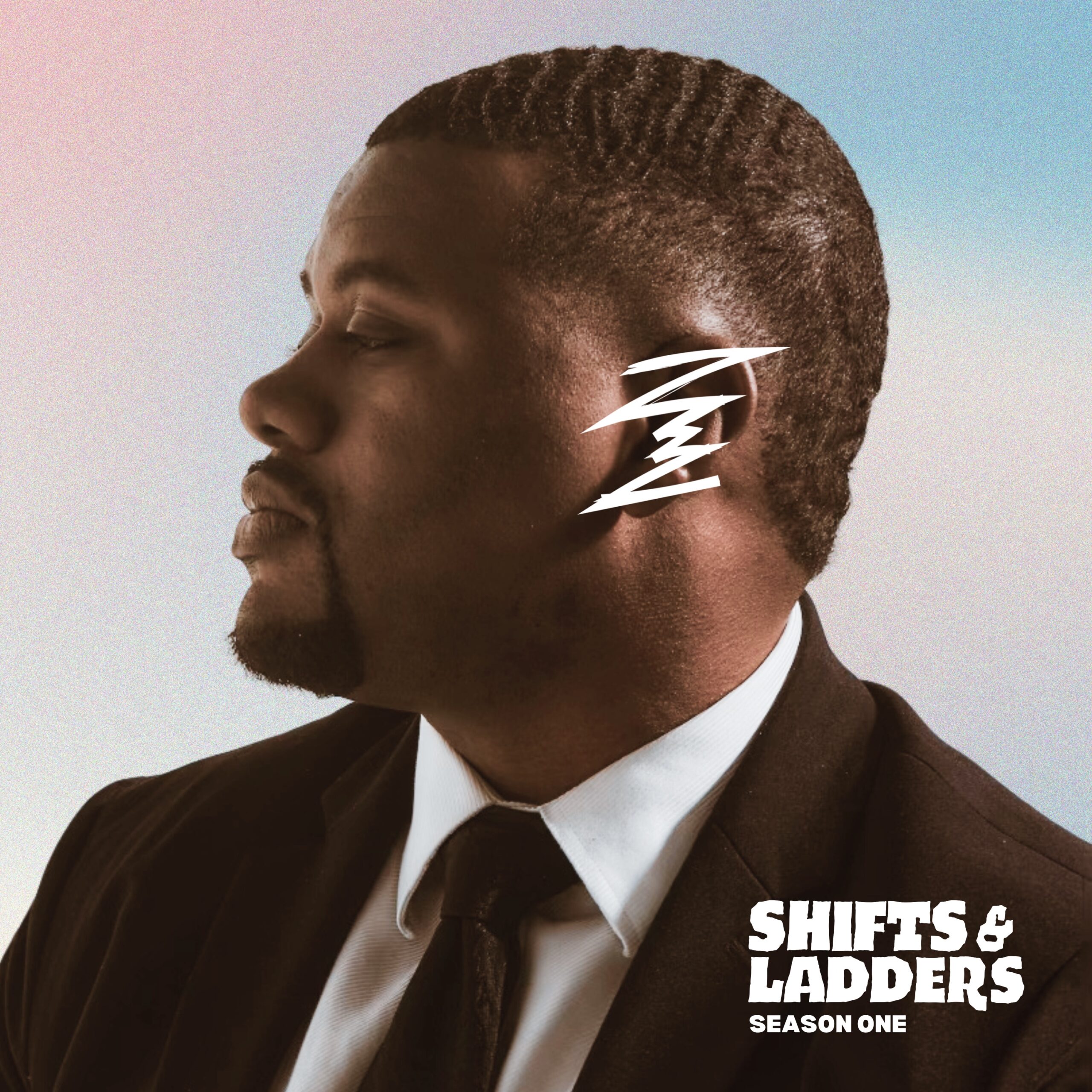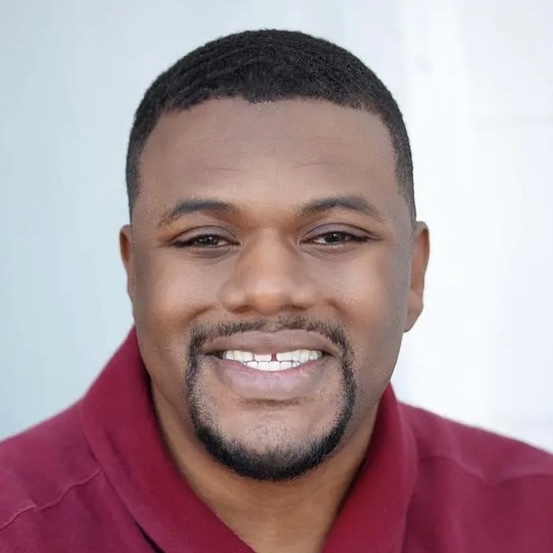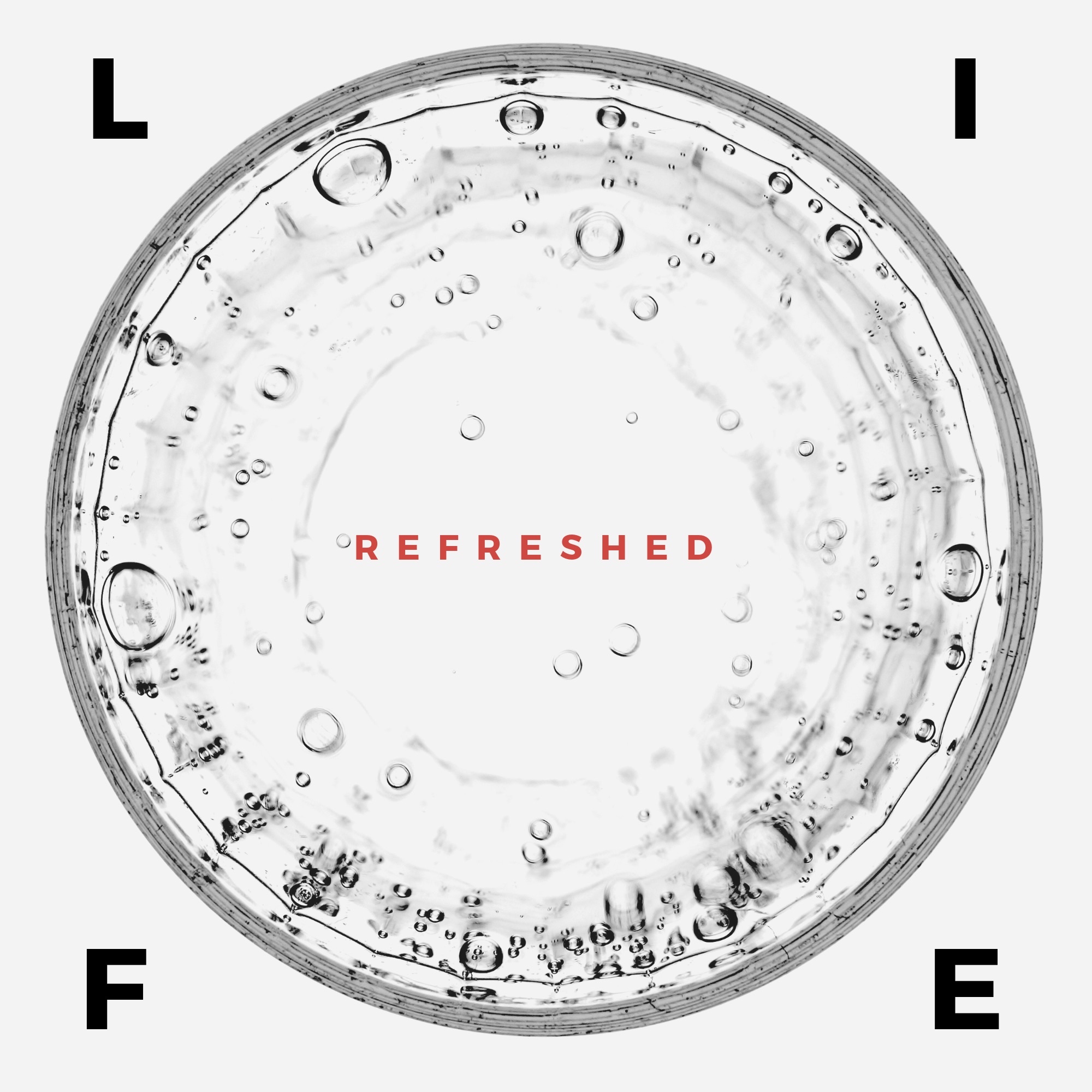Episode Transcript
[00:00:22] Hello and welcome to Life Refresh podcast. Asked, you already know who it is. It's Ryan Robinson. Excited that you are here again for part two of value exchange. And if you are finding this podcast valuable, like I say all the time, share this podcast with someone. I think particularly in this time and in this season, we are really talking about the value that individuals put on themselves as well as what they trade it for. And we talked about Solomon the last time, the man who is considered and is the wealthiest king and person as well as the wisest to have ever lived, that people came to him to get wisdom. And in exchange for that wisdom, they gave material, they gave gold, silver, cedar, all the things that are high cost to an individual. And essentially it won, not only made Solomon rich, but as a consequence of his knowledge and wisdom, the entire nation of Jerusalem was blessed by that.
[00:01:37] And essentially what I want to get this here is that there's a value that we put on things. And essentially what we will do is we will trade, if we value one thing over another, whether it be relationships, whether it be things inside of us that we value, we will trade a relationship for another relationship if we're not careful.
[00:02:03] I'm going to say that again, we will trade one relationship for another for whatever reason it may be, it may give you status, it may give you access, it may give you or protect your opportunities. There are things that we will do subconsciously to protect our interests. And essentially because we will take the value of what we put into something and then trade it for something that we perceive is more valuable, we will indeed maybe lose out on it. I'm going to give you an example. Number one, get right into the teaching today. I used an iPhone last time, but another part of the iPhone that we typically do, when there's new ones that come out, they have what we call a trade in process. And what that will do is it will trade in your particular device for another device that will be coming out in the future. Now, the challenge is with that. You are subject to the manufacturer's pricing of that device.
[00:03:13] So if Verizon says, hey, your device is valued at $700 and Apple says your device is trading at $600, that is dependent upon the person who puts the value on it. Why? There are other implications behind that trade in that will garner more opportunity for that manufacturer. So Verizon might refurbish them, or Apple might refurbish them and resell them in different markets. There's always something that people exchange because they think that this new device, considering that it is new, has new parts, et cetera, is more valuable than what they have.
[00:04:01] So because individuals are not investing as much time, it makes it easier to trade something in. If you have traded your time in a relationship and have not gotten the return or the exhortation or what you needed out of that relationship, it makes it easier to move on. Let's keep it 100. If someone is giving you, are you dating someone? And someone does not reciprocate the feelings that you have, it makes it a little bit easier to disengage, because even though you have invested more time in it and it has not garnered the same response back to you, it makes it a little bit easier. But particularly if you had your hope in it, it makes it really difficult to make that shift. So why am I bringing all this up? We are now talking about Solomon, but there's a transition here. And Solomon in his older age, he was, you can say, maybe too smart for his own good. He began to connect with other entities and other genealogies outside of what he was commanded to do. And I'm pulling this up, and we've been in second chronicles for most of this. And I talked about how the queen of Sheba came through. But one of the things that came as a consequence, his son Rayaboam, is considered one of the, you can kind of start seeing things kind of pivot. Now, in the Bible, there was some commandments that God had strategically put to them as a response to being in the land of milk and Honey, the land of Canaan, that was given to the people of Israel.
[00:06:08] And one of them was to not marry the people that were around the community.
[00:06:15] Typically, these are like the Jebusites, Hittites, Canaanites, because they had some practices that were not honoring of God, but also replicated what they experienced in many cases in Egypt. So it was worshiping other gods besides the God of Israel. And God knows his people. He's like, listen, make sure you're not around that, because what that'll do is it will actually create some challenges between us, and essentially, there will be a value exchange. You will value that overvaluing me. And this is a boundary that God put in place. Listen, don't mix with the other women from those other groups. Why? Because some of the people groups did child sacrifice. It's just crazy. Some of the stuff that God was trying to protect them from, it was something that, again, God was trying to protect them. It's just wild. I can go in all day with them. But as a consequence, Solomon basically was told by God that because of your disobedience to my commandment, you'll still keep everything but your children.
[00:07:43] The kingdom will split into two because of your disobedience.
[00:07:47] And he said, you may not see it in your time, but your line will have to inherit the consequence, and it will be. And I'm pulling it up here. And as I'm going through this, this is not something that is sitting there saying, like, hey, God can still use us, right? In spite of all of our imperfections, God is still able to use us. But I want to just be clear that God has some clear lines to this. So let me read this. And then the lines by which Solomon had created some dissension between God and himself and turns from God. And then what happened as a result that his children had to his son Rayabom had to inherit. So first kings, chapter eleven, verse. Sorry. First kings, chapter eleven, verse one. So this is a whole nother thing to this. But now, King Solomon loved many foreign women, along with the daughter of Pharaoh, the moabite, the Amorite, the Edomite, the Sidionite, and the hittite women from the nations concerning which the Lord had said to the people of Israel, you shall not enter into marriage with them, neither shall they with you, for surely they will turn away your heart with away. So turn your heart. After their gods, Solomon clung to these in love. He had 700 wives, which were princesses and 300 concubines. His wives turned his heart away. For when Solomon was old, his wives turned his heart after other gods. And his heart was not wholly true to the Lord, his God, as was the heart of David, his father. For Solomon went after Estherith, the God of the Sidians, and after Malcolm, the abomination of the Amorites. So Solomon did what was evil in the sight of the Lord and did not wholly follow the Lord as David, his father, had done when Solomon built a high place for kimosh, the abomination of Moab, and for Amalek, the abomination of the Amorites on the mountain east of Jerusalem. And he did for all of his foreign wives who made offerings and sacrificed to their gods.
[00:10:16] So not only did Solomon worship them, he funded these activities. Okay, so as a response to this, the Lord was angry with Solomon because his heart had turned away from him. And essentially, God had seen this practice. He did not keep the covenant. And he said, I'll surely tear the kingdom from you and give you two kingdoms. Okay, so value exchange, right? He essentially traded in something that was of value to him. Early in his life. So he forgot that God had blessed him, that God had given him everything that he had, and in fact, gave him everything that he did to fund the thing that he told him not to do. And we again, trade in, and this is a part that I think is super important, is that we forget once time has passed, how important something was to us, especially when we don't have it or when everything's fine. When everything's fine, everything's cool. Of course, it's nice to have. You can do things. You almost forget that you were resourced or you were blessed with this particular person, this particular resource, whatever the case is, so you easily exchange it. Why? Because you think you don't need it anymore.
[00:11:36] And in the Bible, this has happened to God all the time, that the people of Israel thought that, okay, well, things are fine.
[00:11:45] We don't need anything. Well, maybe I can try this thing now. And God's like, no, don't forget, I'm the person that took you. I'm the person that took you to the dance, drove you, fed you, clothed you, funded you. Don't forget about me.
[00:12:02] And essentially, they valued Solomon, valued the opinions and precepts of someone else other than what his father. And it's important that he says this, what David, his father, had done, because there was a different value put on that. Why? Because David Solomon didn't have the level of experience that David had with God. Okay, so we're going to jump right into this new thing of exchange, and I'm going to use a mineral that most of us are familiar with, bronze and gold. Okay, so Rayaboam, and I'm just going to give a quick summary of his. It's in one kings, chapter twelve, and it's called Rayaboam's folly. And essentially, there are some circumstances by which reaboam comes into kingship. And the people were really, I would say, feeling the pressure that Solomon had put on his people. And essentially he asked to get some time on what to do next. So instead, what he decided to do is like, hey, I'm going to seek some counsel. I'm just here. I'm brand new. And Rehoboam sought to seek counsel of the old men. And the Bible says he sought counsel of old men who had stood before Solomon, his father, while he was yet alive. And he asked this question, what do you advise me to answer these people? And they said unto him, if you will be a servant to this people today and serve them, speak good words to them when you answer them, then they will be your servants forever.
[00:13:48] But here it is. But he abandoned the counsel of the old men that the old men had gave him. And took counsel with the young men who had grown up with him and stood before him. And he said to them, what do you advise that I answer these people who have said to me, lighten the yoke that your father put on us. Then the young men had grown up with him. Had said to him, thus shall you speak to this people who said to you, your father made our yoke heavy, but you lightened it for us. Thus shall you say to them, my little finger is thicker than my father's thigh. And now, whereas my father laid a heavy yoke, I will add to your yoke. My father disciplined you with whips. And I will discipline you with scorpions.
[00:14:38] Y'all.
[00:14:41] That, to me is crazy. That Raya Bohem. Now, granted, your father is the wisest men to ever live. Now, I'm a son. I don't know how old Raya Bone was. I want to say he's, like 17 or so when he became king, maybe a little older. And I recognize some of us, we haven't listened to our parents at some point in time.
[00:15:09] And he made this decision without talking to. He made this decision talking to the older ones, but then also talking to the ones that are his boys, basically.
[00:15:24] And essentially what he did was he traded in the wisdom of years ahead of him for years that have grown up with him.
[00:15:38] Now, why is this such a challenging thing to do? Because kingship, depending on if you are a person of humility or a person of ego, you have to provide and get counsel. Now, in the book of proverbs, the Bible says there is safety in a multitude of counselors. So the thing is, it means that if you are not able to speak or think for yourself, you need someone outside of you that can help guide you in decision making. Because there's safety in it. Because not only is there safety in it, but there's also the spirit of God that may rest in some people that can help you clearly articulate and think through situations and circumstance. Because they're not emotionally tied to it. They may be affected by it, but they're not emotionally tied to it. There might be someone in a situation that may have upset you or be pushing your hand in many cases. But because the Bible says there's safety in a multitude of counselors, by the wisdom of Rehoboam's father Solomon, it gives you an inclination that, hey, maybe I should ask someone before I make a decision, because I may be seeing this wrong. You have to be humble enough to say, I might need some confirmation on this. Okay.
[00:17:01] So, with that being said, raya Bohem trades in the value of wisdom for relationship of people who know him and basically gives him the wrong advice. And this wrong advice ends up giving him, and actually, in several chapters later, splits the kingdom of Israel into two, which was what was promised to King Solomon upon his disregard and disobedience to God.
[00:17:46] Now, there are a couple of things that are. And I talk about this with bronze and silver. I'll get right to this. Now, the challenge here with Raya Bohem is that he ended up as a high level note here. He traded in as a way to gain respect, gain relationship within the neighboring kingdoms of Israel. Now, granted, recognize this. His people came to Solomon for his wisdom. Rehoboam does not have. Okay, so people were bringing gifts to him. Rehoboam was giving gifts to.
[00:18:24] Okay. For protection, to kind of keep everything moving, to make sure that he kept relationship with those allies so that they didn't turn upon him. So what ends up happening is Rehoboam trades the wealth of Jerusalem, which was filled with gold, silver, cedar, all these precious gifts.
[00:18:48] He trades them in, and the wealth of Jerusalem is quickly diminished within five years of his kingship.
[00:18:57] Okay, now, we talked about King Solomon's temple that was laced in gold. But what ended up happening is this particular place was now laced and covered with bronze. Okay, now, I want to be able to share this with you about bronze. This particular material. Bronze is a heavy material. It's not as malleable as gold. You have to pound it in order to shape it, which, again, is actually a way to show and disseminate. I'm going to say disseminate way to characterize the relationship that Rahoboam had with God.
[00:19:41] He was stubborn.
[00:19:43] He was stubborn. Instead of utilizing the people that were with his dad and seen his father do amazing things, he said, I'm going to just talk to my boys, and they're going to give me what I need.
[00:19:55] Now, another thing is, it's durable for everyday wear, so it doesn't necessarily need to be.
[00:20:04] It can go through a lot of turbulence, hence why it can be beaten. It can be brighter than gold if you polish it. So it can mask the characteristics of gold. It can be shown, it can be shined. I don't know if that's the right word, but whatever buffered to show that it looks like gold if the light hits it right. But upon further inspection, you'll find like, oh, this isn't really what it is. It's cheaper, it doesn't cost anything. It's more abundant. It doesn't have to go through a purification process like gold does. And it does have a reputation of being used in many cases, but it doesn't have the same level of honor that gold has. Now, the other part of bronze that happens is, and this is something that most people don't understand. And this is why it's crazy how God uses this. Bronze has the propensity to tarnish both the skin and jewelry.
[00:21:15] And that's one of the main differences that it has. Bronze has the propensity to tarnish, and that's the main difference. So when Raya Bohem trades gold of Solomon's tabernacle for bronze, he actually is slowly, as a representation, slowly tarnishing the heart and relationship of God. And it's a amazing that God utilizes these minerals to show and to characterize how their relationship with Israel is progressing. And this is one of the things that we see when we start exchanging value for people's opinions, for other things other than God. So as you're going through the week and as you're going through your processes, think about what have I exchanged value in? And if I have exchanged value in something, perhaps I'm looking at it differently. And maybe is it slowly tarnishing who I am as an individual?
[00:22:19] Is it really creating a different place and space for me now? Versus if I had just kept my relationship with God, allowed everything to work out, and really stay with who brought me to the dance, perhaps we wouldn't be trading in things for lesser value, because God is all the value you need.
[00:22:46] If you have an opportunity. Again, there's part three to this. I got to really get to this part three. But when you get a chance, make sure you share this podcast with someone, particularly as we're starting out the year. Valentine's Day is right around the corner, and you just don't want one. You don't want to trade in some crazy things. You don't want to give your girl bronze if you're married or anything like that, or if you have a friend. But I do want you to know that especially at this top of the year, you don't want to trade in something that you said you were going to do at the top of the year because you think it might be a better opportunity for me to do something less or something that I can obtain on my own. What are dreams if you don't stretch? What are dreams if you don't submit them unto God.
[00:23:30] If you're going for the gold, why settle for the bronze again? Keep it locked here and we'll catch you in the next one. Peace.




